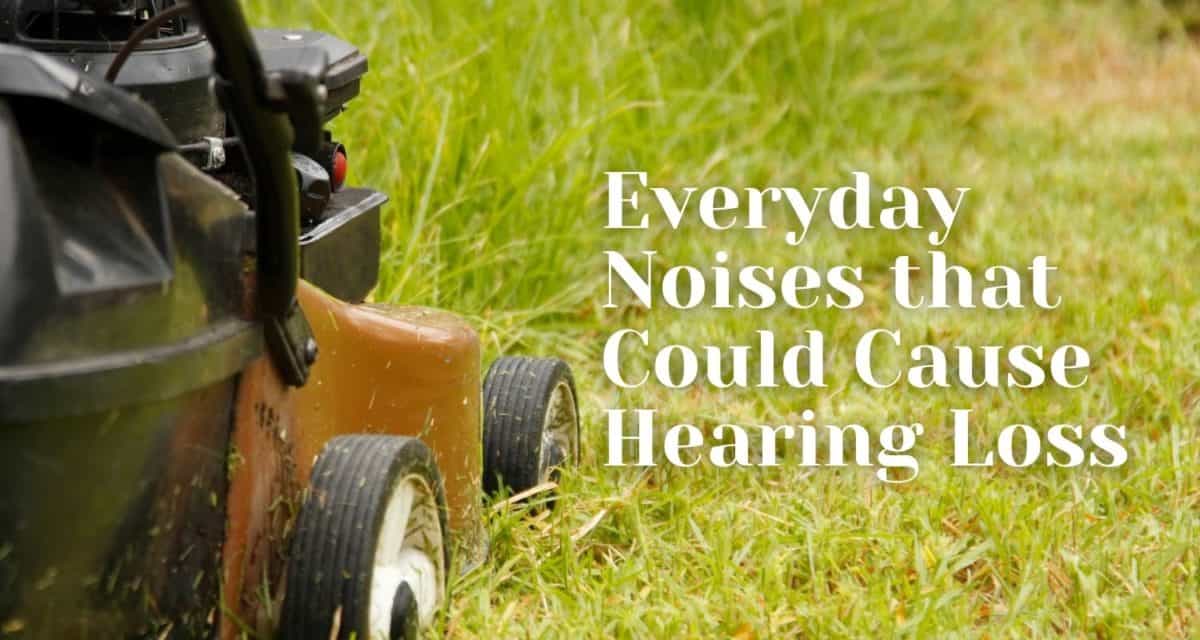- The Future of Hearing Health Research: Promising Breakthroughs - April 18, 2024
- Hearing Health in the Classroom: Strategies for Teachers and Students - April 6, 2024
- The Power of Bluetooth: A New Chapter in Hearing Aids - March 26, 2024
Hearing loss is a condition that impacts millions of Americans — approximately 30 million to be slightly more precise. There are various causes of hearing loss, some of which are unavoidable like genetic conditions or the natural process of aging. But many cases of hearing loss are preventable because they are the result of prolonged exposure to excessive noise. You could make the argument that a good portion of these cases is likewise unpreventable, occurring in unpredictable scenarios like an accident or explosion. And that would certainly be true!
A more insidious cause of hearing loss as a result of noise exposure is the commonplace volumes we unwittingly subject our ears to every day.
Causes of noise-induced hearing loss
Our ears and hearing system are magnificently designed. Consider the fact that we can hear leaves rustling on a crisp fall day and still withstand the overwhelming volume of a crowded sports stadium on game day. That’s a pretty wide range of volumes our ears can handle!
Though we can tolerate loud noises like the collective roar of thousands of people cheering for the home team, those types of volumes are damaging the fine cells of our inner ears. You may have even experienced being in a raucous sound environment and leaving with ringing ears, slight pain, or even muffled hearing. These are all receipts for the damage to our ears.
When volumes exceed 85 decibels (the unit of measurement for sound), we are at risk of harming the cells of the inner ear responsible for receiving noise from the external world and transmitting it as sound information to our brains. When they are damaged or die, they do not repair themselves or regenerate. Instead, we collect less sound information and effectively hear less.
How loud is too loud?
Remember when we mentioned that anything over 85 decibels could harm hearing? Experts recommend limiting exposure to sounds over 85 decibels to no more than 8 hours. Sounds at or above 100 decibels should be limited in exposure time to 15 minutes, while 120+ decibels should be avoided as even one minute could cause damage.
Everyday sounds that harm hearing
For use in comparison, it might be helpful to note that conversation clocks in at about 60 decibels. This is a completely safe level of volume that you can be exposed to infinitely without risking hearing loss. However, an activity as mundane as blow-drying your hair can fall between 91 and 110 decibels.
According to the recommended guidelines, blow-drying your hair for more than 15 minutes could risk permanent damage. And this is an activity that some people perform daily!
Other everyday risks:
- Busy Traffic: 80-90 decibels
- Lawnmower: 90 decibels
- Movie theater: 90-100 decibels
- Earbuds: 100+ decibels at full volume
- School dance: 101-105
- Rock concert: 100-120 decibels
- Sports stadium: 120 decibels
Ways to protect your hearing
If you want to see what types of volumes you are exposing your ears to, you can begin to monitor your sound environments more closely. Turn your smartphone into a piece of high-tech sound equipment with an app to measure decibels. Decibel X will give you a fairly accurate reading. You might also check out the volume tracking data on your phone. In the iPhone, you can find this in the health app. Other phones may require you to download an external app. Use the data presented to see if your volumes exceed 85 decibels and if so, dial it down.
Investing in high-quality hearing protection is a good idea if you engage frequently in noisy activities. Custom hearing protection will provide the greatest level of safety and we are here to help you sort through your options and find the most effective choice.
Signs of noise-induced hearing loss
It may be that excessive noise has already made a harmful impact on your hearing health. The symptoms are as subtle as age-related hearing loss, which makes it incredibly difficult to self-diagnose. The first signs will emerge as issues with speech clarity, making conversations difficult because it sounds like everyone is mumbling. You may start to dodge phone calls because verbal conversations are difficult and frustrating. For many people, the signs are unobtrusive and occur gradually over time, so friends and family notice changes in behavior first.
Hearing aids can help
While noise-induced hearing loss is not reversible, it is highly treatable. We help people with poor hearing health every day, matching them with solutions that work.

